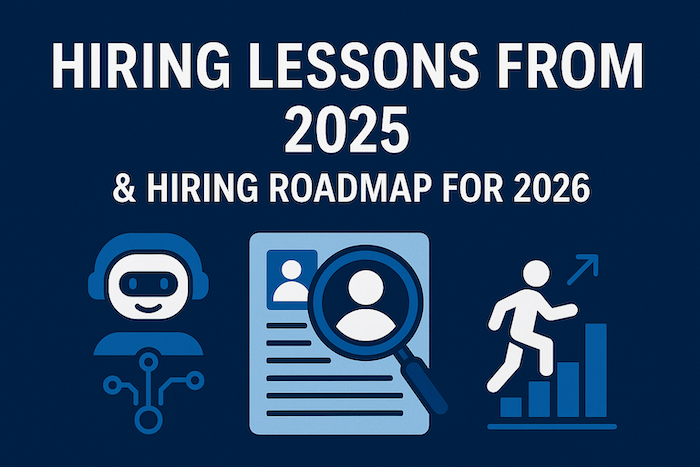7 Old School Ways to Stand Out In a Job Interview

During the interviewing process, you might think to yourself, “I’m the BEST candidate for the job!” The truth is even if you are an awesome candidate, you are not the only candidate in the running. With the job market intensifying, you want to make sure you are a competitive applicant on paper and in person. So, what are some different ways that can help you stand out from your competition?
These seven tactics bring you back to the basics of interview preparation and best practices to use that often get lost, skipped, or forgotten during the interview process.
Elevator Pitch
An elevator pitch is a brief 30-60 second way of introducing yourself, getting a couple of key points across, and making a memorable connection that can be followed up upon. Elevator pitches should be memorized and practiced prior to job searching. You never know when you might have the opportunity to network with someone, so you want to make sure that you have your pitch down and can recite it flawlessly. The idea of an elevator pitch is to generate interest and convince a decision-maker in a short amount of time that you are the right candidate for the job. An elevator pitch can even be used when answering the dreaded question, “Tell me about yourself.” Job seekers tend to get caught not knowing what to say or being completely unprepared. Practicing your elevator pitch and ensuring it is clear, concise, and memorable will help you stand out from your competitors.
Voicemail Greeting
Imagine yourself submitting a job application for your dream job: You double-check the spelling errors in your resume, make sure you have a stellar cover letter prepared, and eagerly wait to hear back from the employer. So, why don’t you hear back? This could be due to a few different reasons. Many hiring managers will review resumes and follow up with a quick phone call to go over some specific resume details to see if you are a good fit for their company. If you don’t have a voicemail box set up, the hiring manager may assume you are not serious about your search. This is the same case for unprofessional or “funny” voicemail greetings. Lastly, if your voicemail box is full, the hiring manager may get frustrated with trying to get ahold of you. You want to make sure you are as accessible as possible to any future employer.
Business Professional Attire
Now, you’re getting ready to leave for your interview! You’re thinking to yourself, “What should I wear?” Business professional attire is always the safest option. The saying, “Dress to impress,” really never fails. Your appearance plays into your employer’s first impression of you and can send a message about your motivation, your professionalism, and if you are a good fit for their company. Dressing more conservatively with freshly washed, ironed clothes will show your confidence and respect for the employer’s time. The sharper you dress, the better you feel, and the more you will stand out from your competitors.
Preparing for Interviews
When answering the phone for an interview, be sure to introduce yourself. You should start by saying, “Hello, this is ___ speaking.” From there, be sure to speak with an enthusiastic tone while still being polite and respectful. Stray away from talking to the interviewer like they are a friend and try not to interrupt them. Listen actively to avoid any miscommunication and take notes if needed. Towards the end of the call, you may have the opportunity to ask questions. Be sure to have a few questions prepared, but do not ask any questions that have already been answered during the interview.
The “Handshake”
When preparing for an interview, handshakes may come as a second thought. Handshakes are another aspect of the interviewer’s first impression of you. A handshake can help establish a connection between you and the interviewer and make them more eager to speak with you. A strong handshake can show your professionalism and indicate you have experience and the ability to succeed at a company. Always make eye contact when shaking an employer’s hand and ensure your grip is firm. Be prepared to shake the interviewer’s hand at both the beginning and end of the interview while also thanking them for their time.
Thank You Emails
Finally! You have successfully rocked your interview. Now, it’s time to write a thank you note. Thank you notes and emails have become a lost practice over time. Most job applicants either forget or don’t find them to be an important aspect of the interviewing process, however, hiring managers certainly take note. It may seem “old school,” but it will leave the interviewer with a positive impression of you and help give you the upper hand against other applicants. Even if you decide you are no longer interested in the position after the interview, still send a thank you email. Never miss an opportunity to network, because you never know when your paths will cross again in the future!
Following Up
Now, the excitement from your interview has settled and you're beginning to wonder if you were selected. You are probably asking yourself, would it be appropriate to check in? Try not to overthink and follow up within a week of your most recent interview. You want to be at the top of a hiring manager’s mind when it comes to a decision and a follow-up email can assist with this. It can be short and sweet, but it serves as a reminder that you are still very interested in the role you interviewed for.
These 7 “old school” practices will help you stand out against your competition and give you the best shot at securing your dream job!











